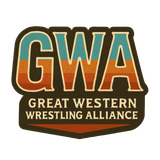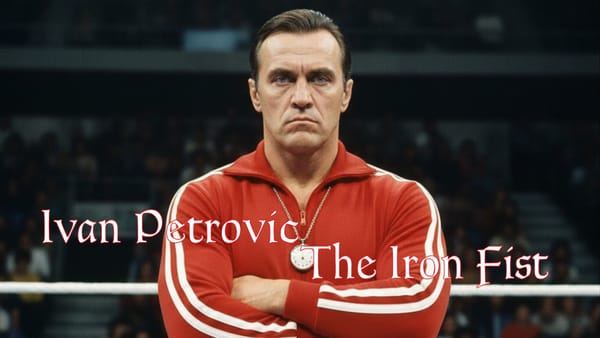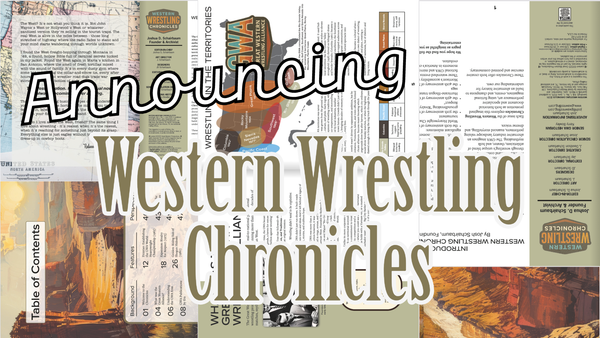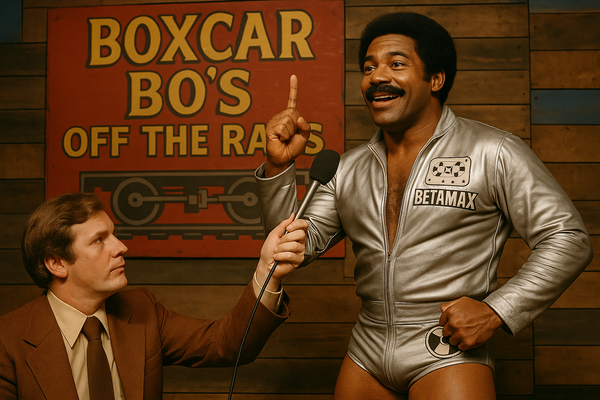"The Professor" Harold Langston
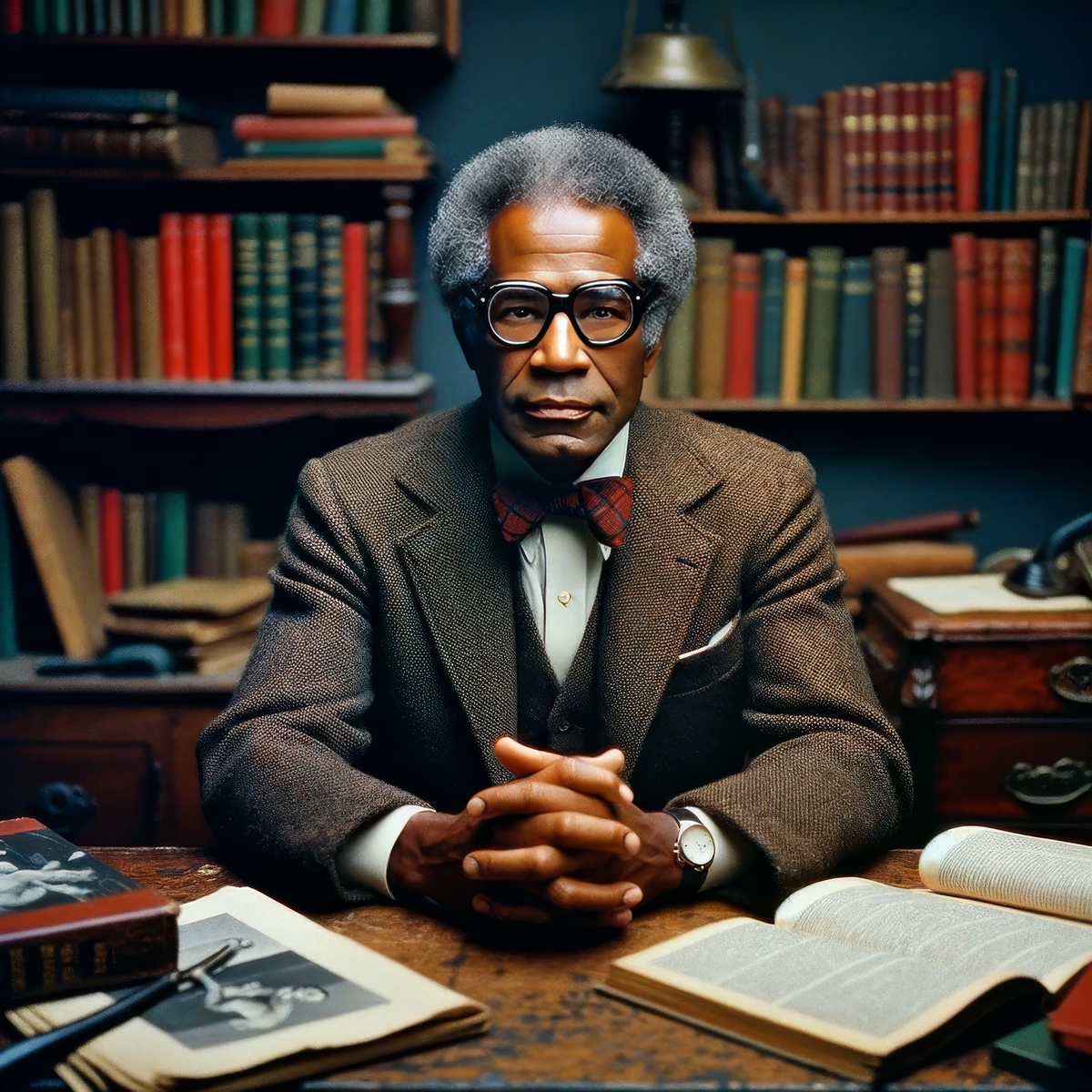
Draped in the regalia of academia and wrestling combined, "The Professor" Harold Langston brought an unprecedented intellectual gravitas to the gritty arenas of the Great Western Wrestling Alliance (GWA). A former philosophy professor at Stanford University, Langston turned the wrestling world into his new lecture hall, teaching not only physical prowess but also the art of strategic thinking and ethical combat. Known for his signature tweed jackets, round glasses, and a sharp, commanding presence, Langston was both a mentor and a strategist, pioneering events like The Enlightenment Tournament that melded mind and muscle in a spectacle of sport and intellect. Whether ringside with a book in hand or engaging the crowd with his erudite charm, Langston transformed how wrestling was perceived and practiced, leaving a legacy that transcended the boundaries of the ring and entered the realm of legend.
Biography
Harold Langston, affectionately known as "The Professor" in the GWA, seamlessly blended the worlds of academia and professional wrestling. Originally a philosophy professor at Stanford University, Langston's fascination with the psychological and strategic facets of wrestling led him to a dramatic career shift. His deep understanding of human behavior and competition theory made him a unique presence in the wrestling world. As the manager of the World Renowned Squabble Squad, Langston applied his scholarly insights to develop intricate game plans and foster a team spirit rooted in philosophical tenets, leading the squad to notable victories and making them fan favorites.
Wrestlers Managed
"The Professor" Harold Langston managed an influential and talented group of wrestlers in the GWA, known collectively as the World Renowned Squabble Squad. Here are some of the notable wrestlers he represented:
- Harlem Hurricane - Known for his dynamic style and powerful presence in the ring, Harlem Hurricane was a key member of the squad, benefiting greatly from Langston's strategic guidance.
- Gridiron Harris - A wrestler with a background in football, Harris transitioned into wrestling and thrived under Langston's mentorship, utilizing a mix of brute strength and tactical play.
- "The Viper" Vic Steele - Vic Steele, a cunning and agile wrestler, often used strategies developed with Langston's philosophical insights to outmaneuver opponents.
- Lisa "Action" Jackson - As the only female wrestler in the squad, Jackson broke barriers with her resilience and skill, often highlighted in matches that showcased her strategic thinking influenced by Langston's teachings.
- "Bayou" Benny Lacroix - Later in his career, Benny Lacroix sought reform under Langston's guidance, moving away from his heel-based tactics to embrace a more honorable approach in the ring.
Career Highlights
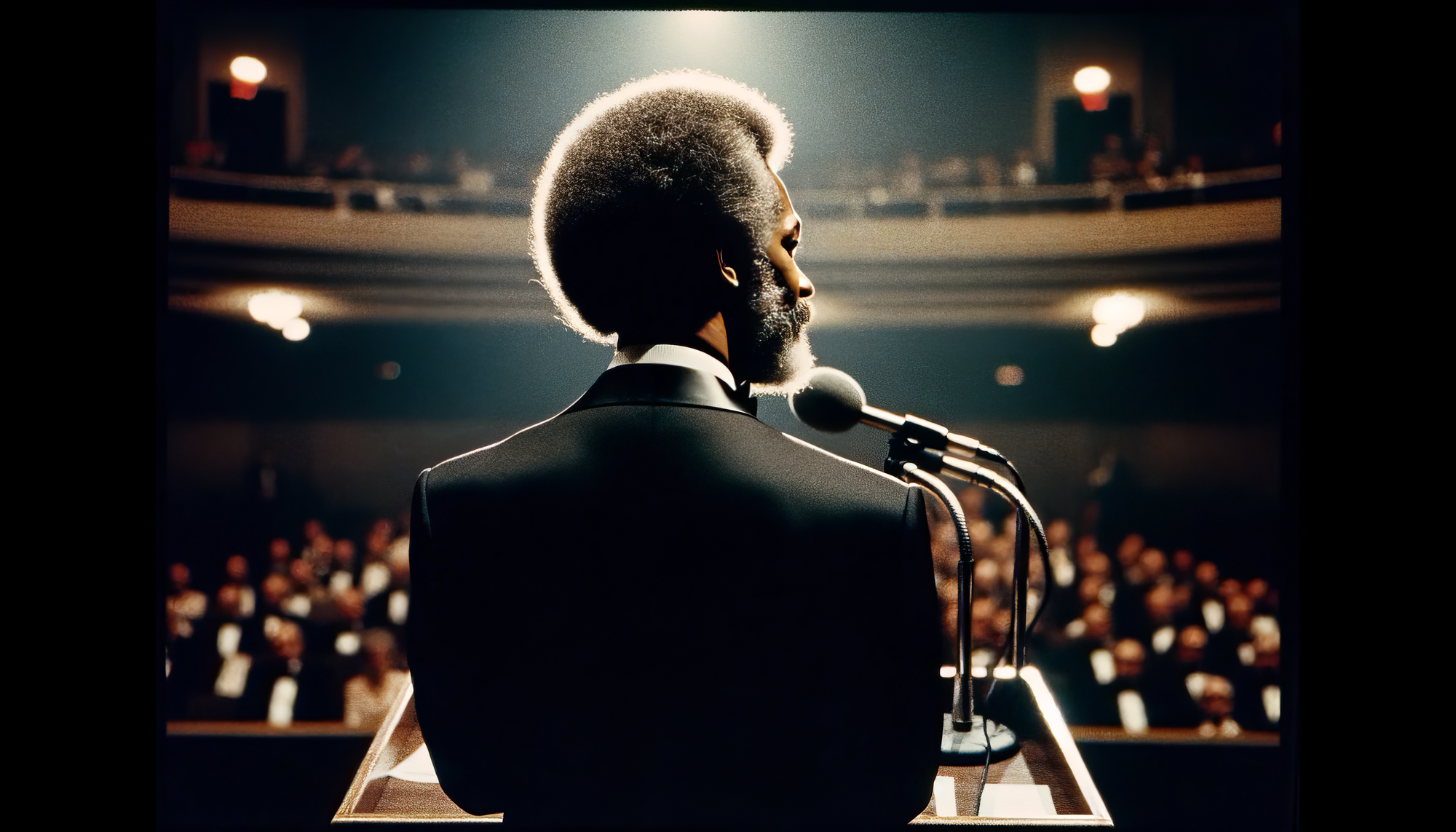
- Historic Championship Victory at GWA Glory Nights (1983) - In one of the most memorable matches orchestrated by Langston, his wrestler, long-time industry veteran, "The Viper" Vic Steele, clinched the GWA SoCal Heavyweight Championship. The match took place at the highly anticipated annual event, GWA Glory Nights. Under Langston's guidance, Steele employed a strategy that blended psychological warfare with unparalleled physical agility, outmaneuvering the long-reigning champion, "Steel Hammer" Hank Roberts. Langston's role was critical as he provided Steele with philosophical insights on mental resilience and strategic positioning, which Steele credited for his victory in post-match interviews.
- The Enlightenment Tournament Finale (1968) - Langston's creation, The Enlightenment Tournament, culminated in a finale that was both a sporting and intellectual spectacle. The final debate-wrestling match hybrid featured Langston’s wrestler, Harlem Hurricane, who demonstrated exceptional skill and philosophical prowess, leading them to win the tournament. This event not only showcased Langston's innovative approach to wrestling but also elevated the profile of his wrestlers, proving that intellect could dramatically enhance athletic performance. The tournament received widespread acclaim and was later institutionalized as an annual GWA event, thanks to Langston's visionary concept.
- Induction into the GWA Hall of Fame (1993) - Recognizing his unique contributions to the sport, Langston was inducted into the GWA Hall of Fame. This accolade was not just for his success as a manager but also for his profound impact on the intellectual and cultural aspects of wrestling. During the induction ceremony, tributes poured in highlighting how Langston's integration of philosophy and wrestling strategy revolutionized how managers and wrestlers approached the game, influencing training methods and promotional strategies across the league.
These highlights reflect not only the tactical success Langston achieved through his wrestlers but also his enduring impact on the philosophical and strategic dimensions of professional wrestling, making him a legendary figure in the GWA.
Key Storylines
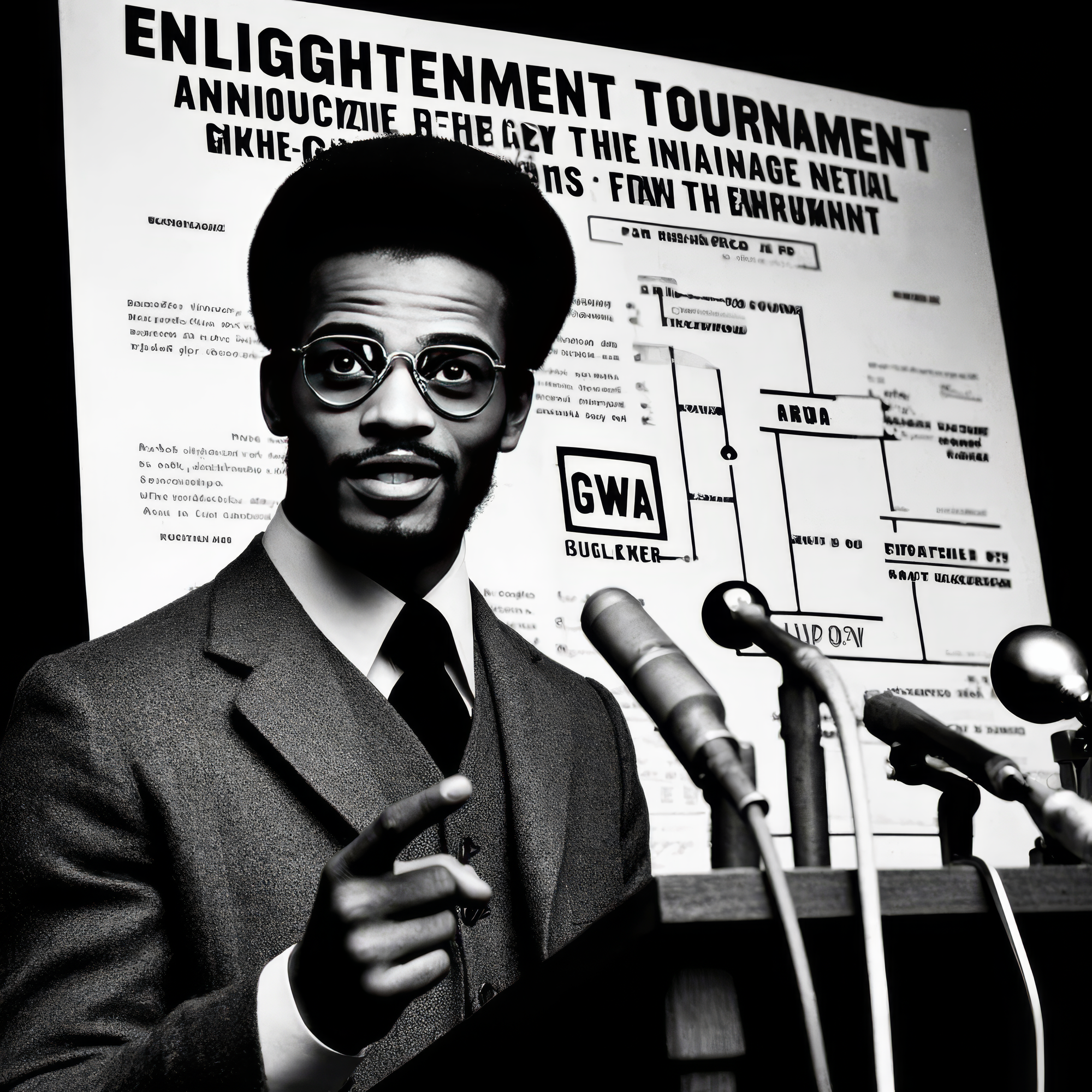
- The Enlightenment Tournament: Harold Langston introduced a unique tournament blending physical wrestling matches with intellectual debates, pushing competitors to demonstrate prowess both in and out of the ring.
- Dual of Minds: Langston vs. The Charlatan: This storyline featured a rivalry with a manager known as "The Charlatan," who criticized Langston's methods as pseudoscientific. Through a series of matches and a final debate, Langston proved the effectiveness of his philosophical approach to wrestling.
- The Reformation Arc of ‘Bayou’ Benny Lacroix: Langston guided the notorious wrestler Benny Lacroix from a career tainted by underhanded tactics to one marked by integrity and respect, showcasing the transformative power of his philosophical teachings.
- The Treaty of the Rings: When internal strife threatened the unity of the GWA, Langston orchestrated a series of matches and public debates that resolved the conflict, culminating in a peace agreement known as "The Treaty of the Rings."
Persona
"The Professor" was a calm, composed figure who rarely raised his voice, yet his presence was commanding. He approached every match with a strategic plan influenced by great philosophers, often quoting Nietzsche or Sun Tzu in pep talks. His calm demeanor and thoughtful expressions made him a respected figure both backstage and in the arena. Despite his academic roots, Langston possessed an uncanny ability to connect with the wrestling audience, often using allegories and analogies that turned complex theories into accessible wrestling wisdom.
Interview Style
During interviews, Langston's eloquence shone. He spoke in a measured tone, often weaving philosophical quotes into his discussions about upcoming matches and wrestler development. His catchphrase, "In the grand ring of life and wrestling, every move must be made for the glory of the craft, not merely for victory," resonated with fans and wrestlers alike. Langston used media interactions not just to promote matches but to elevate the intellectual appeal of wrestling, making each interview a lesson in philosophy. Other quotes from Professor Langston included:
- "In the dance of competition, as Nietzsche suggested, one must embrace the chaos to find one’s true strength. Let us turn chaos into a ladder, a path to triumph."
- "Just as Socrates questioned the Athenians, I urge my wrestlers to question every conventional move and response—to seek wisdom in the face of brute strength."
- "Aristotle spoke of the 'Golden Mean'—the desirable middle between two extremes. In wrestling, this balance between aggression and restraint is crucial."
- "Much like a sculptor chisels away stone to reveal the form within, a wrestler must chip away at their limitations to reveal their true potential."
- "As Emerson advised us to 'trust thyself,' so too must a wrestler trust in their training, their instincts, and their heart when in the ring."
- "To wrestle is to engage in a dialogue of bodies, where each hold and counter-hold is a statement and a reply in an ongoing conversation of strength and will."
Presence at Ringside
At ringside, "The Professor" Harold Langston was a figure of calm erudition amidst the chaos of wrestling matches. He was almost always seen with a philosophical tome in hand, often from a Harlem Renaissance author, which he occasionally referenced during matches to the amusement and delight of fans. His approach was hands-off; he trusted his wrestlers to execute the strategies discussed beforehand. However, he was quick to offer strategic advice during critical moments, often signaled by a subtle nod or a quiet word during timeouts.
In addition to his philosophical books, Langston frequently brought out a thermos of tea and papers to grade from his old, well-worn leather satchel. This practice not only kept him connected to his academic roots but also reinforced his identity as a scholar. These quiet, scholarly activities at ringside served as a stark contrast to the physical intensity of the matches, highlighting his unique blend of academia and wrestling expertise.
Management Style
Langston’s management style was deeply analytical. He spent hours studying match tapes and devising strategies tailored to each wrestler's strengths and weaknesses. His philosophy-infused approach not only focused on physical training but also on mental conditioning, teaching his wrestlers to think like philosophers and strategize like generals. This intellectual preparation proved to be a key factor in the Squabble Squad's success, making them not just athletes but thinkers in the ring.
Additional Contributions to the GWA
Beyond his managerial duties, "The Professor" Harold Langston made substantial contributions to the broader wrestling community through his intellectual engagements and media presence. He was a frequent contributor to the Grapple Gazette, where he penned Guest Opinion columns. These writings delved into the philosophical underpinnings of wrestling, offering reflections on themes such as courage, resilience, and the ethics of competition. His columns were not only informative but also thought-provoking, challenging readers to consider the deeper implications of the sport and its impact on both wrestlers and fans.
Additionally, Langston was an integral part of the GWA television broadcast team. Alongside the legendary commentator Buck "Sagebrush" Thompson, Langston brought a scholarly perspective to the commentary booth. His insights during broadcasts helped viewers appreciate the strategic complexities of wrestling matches, enhancing their understanding and enjoyment of the sport. His partnership with Thompson was particularly celebrated, as it combined Sagebrush's seasoned, folksy articulation with Langston's erudite commentary, creating a dynamic that was both enlightening and entertaining for the audience.
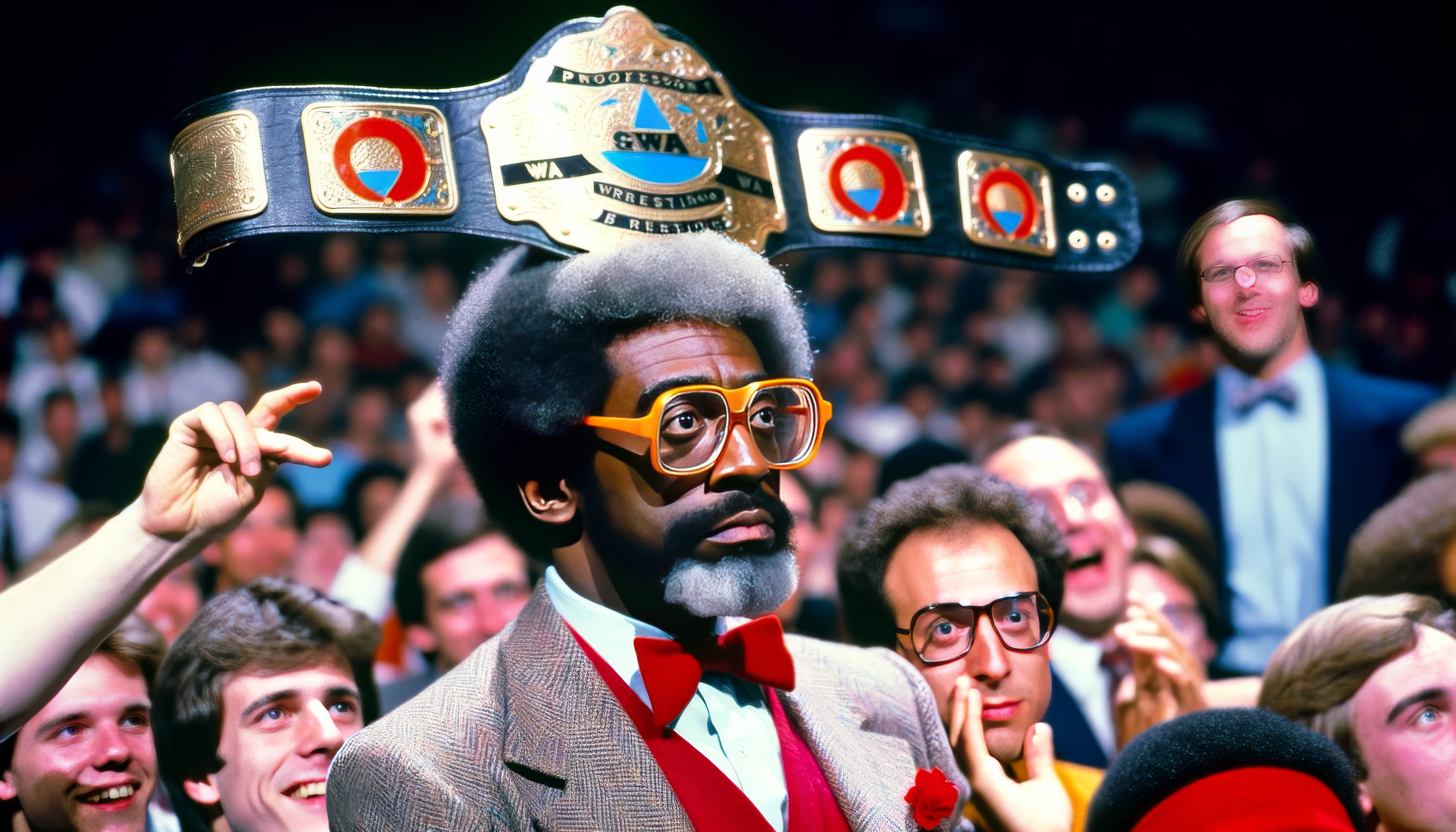
This dual role as a columnist and broadcaster allowed Langston to influence the wrestling world not just at ringside but also in the minds and living rooms of countless fans, cementing his legacy as a thinker and educator in the realm of professional wrestling.

